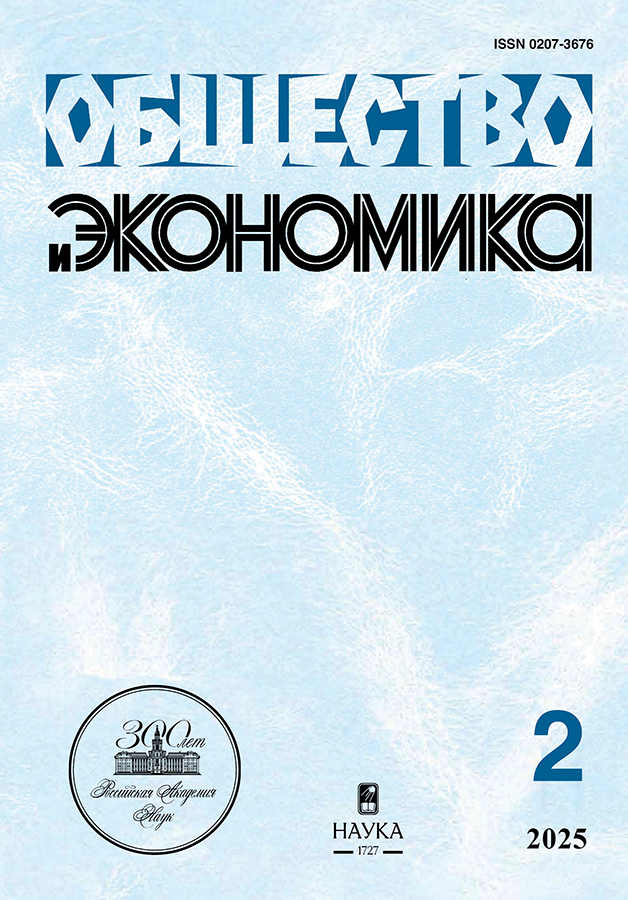Some ways to improve microbusiness taxation in the Republic of Uzbekistan
- Authors: Rasulev A.1, Voronin S.2,3, Koraboev B.2
-
Affiliations:
- Tashkent State Economic University
- Institute of Budget and Tax Studies under the Ministry of Economy and Finance of the Republic of Uzbekistan
- Tashkent Branch of Plekhanov Russian University of Economics
- Issue: No 2 (2025)
- Pages: 77-93
- Section: FINANCIAL POLICY
- URL: https://ruspoj.com/0207-3676/article/view/682749
- DOI: https://doi.org/10.31857/S0207367625020061
- ID: 682749
Cite item
Abstract
The article considers the current issues of microbusiness taxation. An assessment of various taxation regimes for entrepreneurs in the Republic of Uzbekistan is made. It is revealed that turnover tax and fixed-rate tax are more attractive for microbusiness entrepreneurs than VAT or income tax. The use of VAT does not contribute to the expansion of trade relations between small, medium, large businesses and microbusinesses. The author proposes to maintain the existing tax regime for microbusiness entities in the form of turnover tax at a fixed rate (on a voluntary basis). Recommendations for improving microbusiness taxation in the context of economic reform are substantiated.
Full Text
About the authors
Alisher Rasulev
Tashkent State Economic University
Author for correspondence.
Email: arasulev@yandex.ru
Grand Ph.D. in Economics, Professor
Uzbekistan, TashkentSergey Voronin
Institute of Budget and Tax Studies under the Ministry of Economy and Finance of the Republic of Uzbekistan; Tashkent Branch of Plekhanov Russian University of Economics
Email: sergey_voronin@yahoo.com
Grand Ph.D. in Economics, Chief Specialist, Professor
Uzbekistan, TashkentBobur Koraboev
Institute of Budget and Tax Studies under the Ministry of Economy and Finance of the Republic of Uzbekistan
Email: qoraboyev.bobur@mail.ru
Manager of the Rating Improvement Project, Lecturer
Uzbekistan, TashkentReferences
- Абатуров Р. ЦЭИР. По итогам 9 месяцев 2024 г. экономика Узбекистана продолжила наращивать темпы роста. URL: https://review.uz/post/razvitie-ekonomiki-uzbekistana-za-9-mesyacev-2024-g
- Бакиров О. Будет ли отменен фиксированный налог с продаж с 2026 года? URL: https://t.me/the_bakiroo/9122
- Хамидулин М.Б., Исакова З.М. Использование проектного подхода в повышении эффективности государственного управления / Научные труды Северо-Западного института управления РАНХиГС при Президенте РФ (Санкт-Петербург). 2022. Том 13, № 1 (53), С. 167–170.
- Mas-Montserrat M. et al. (2023), «The design of presumptive tax regimes», OECD Taxation Working Papers, No. 59. OECD Publishing, Paris. URL: https://www.oecdilibrary.org/taxation/the-design-of-presumptive-tax-regimes_141239bb-en.
- Ruchira Kumar «Targeted Financing For SME’s and Employment Effects: What Do We Know and What Could Be Done Differently?», World Bank Report. 2017.
- Thuronyi V. (2004), «Presumptive Taxation of the Hard-to-Tax», in Alm, J.J. Martinez-Vazquez and S. Wallace (eds.), Taxing the Hard-to-tax: Lessons from Theory and Practice (Contributions to Economic Analysis, Vol. 268), Emerald Group Publishing Limited, Bingley. URL: https://doi.org/10.1016/S0573-8555(04)68805-5.
- Bucci V. «Presumptive Taxation Methods: A Review Of The Empirical Literature», Journal of Economic Surveys, 2020. Vol. 34. P. 372–397. URL: https://doi.org/10.1111/joes.12304.
- Engelschalk M., Loeprick J. MSME taxation in transition economies: country experience on the costs and benefits of introducing special tax regimes, The World Bank, Policy Research Working Paper Series: 7449, 2015.
- Engelschalk M. Designing a tax system for micro and small businesses : guide for practitioners, No. 42435, World Bank Group, Washington, D.C. 2007. URL: https://documents.worldbank.org/en/publication/documents reports/documentdetail/980291468158071984/%20designing-a-tax-system-for-micro-and-small-businesses-guide-for-practitioners (accessed on 11 May 2022).
- Расулев А.Ф., Воронин С.А. Новая архитектура построения налоговой системы Республики Узбекистан // Экономика и финансы. 2020. № 3. С. 59–60.
- Петров Ю.А. Налог на добавленную стоимость: снижение ставки или отмена? // Общество и экономика. 2009. № 1–2. С. 24–25.
- Завалишина И.А. Налоги: Теория и практика. Ташкент: Изд. Дом «Мир экономики и права». 2004. С. 99–100.
Supplementary files











